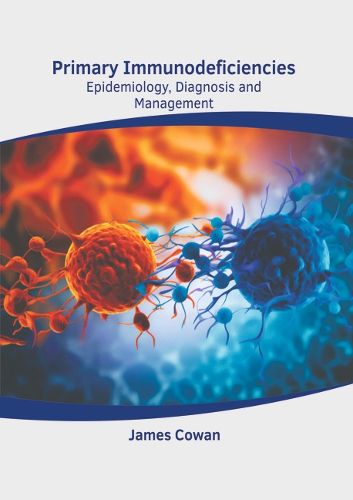Readings Newsletter
Become a Readings Member to make your shopping experience even easier.
Sign in or sign up for free!
You’re not far away from qualifying for FREE standard shipping within Australia
You’ve qualified for FREE standard shipping within Australia
The cart is loading…






Immunodeficiencies are conditions characterised by impaired or weakened immune system function, which can result from genetic defects, diseases or certain medications. These deficiencies leave individuals more susceptible to infections caused by bacteria, viruses, fungi or parasites. Depending on the specific immunodeficiency, symptoms can vary from recurrent infections to more severe and prolonged illnesses. Diagnosis involves specialised testing to assess immune function and identify the underlying cause. Treatment strategies aim to manage symptoms and prevent infections, often including immunoglobulin replacement therapy, prophylactic antibiotics, and in severe cases, stem cell transplantation. Ongoing efforts aim to enhance therapeutic strategies and improve outcomes for affected individuals, supporting better management of infections and related health challenges. This book traces the progress of this field and highlights some of its key concepts and applications. The topics covered in this extensive book deal with the core subjects of immunology. It is a vital tool for all researching or studying immunodeficiencies as it gives incredible insights into emerging trends and concepts.
$9.00 standard shipping within Australia
FREE standard shipping within Australia for orders over $100.00
Express & International shipping calculated at checkout
Immunodeficiencies are conditions characterised by impaired or weakened immune system function, which can result from genetic defects, diseases or certain medications. These deficiencies leave individuals more susceptible to infections caused by bacteria, viruses, fungi or parasites. Depending on the specific immunodeficiency, symptoms can vary from recurrent infections to more severe and prolonged illnesses. Diagnosis involves specialised testing to assess immune function and identify the underlying cause. Treatment strategies aim to manage symptoms and prevent infections, often including immunoglobulin replacement therapy, prophylactic antibiotics, and in severe cases, stem cell transplantation. Ongoing efforts aim to enhance therapeutic strategies and improve outcomes for affected individuals, supporting better management of infections and related health challenges. This book traces the progress of this field and highlights some of its key concepts and applications. The topics covered in this extensive book deal with the core subjects of immunology. It is a vital tool for all researching or studying immunodeficiencies as it gives incredible insights into emerging trends and concepts.